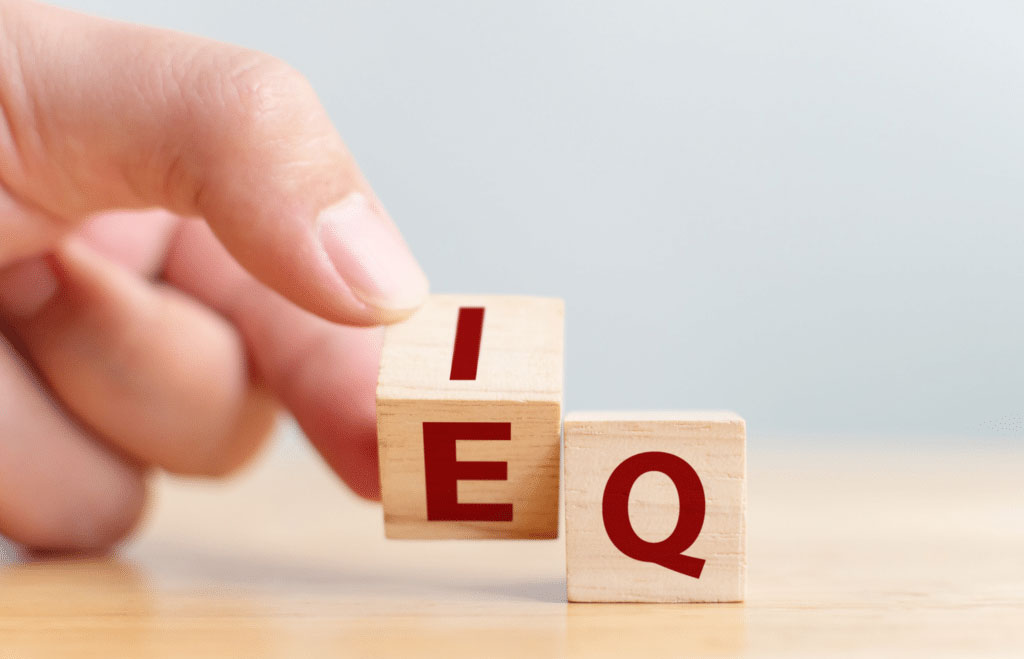Emotional intelligence (EQ) is often thought of as something we either have, or we don’t.
At its most basic, emotional intelligence is self-awareness: our ability to interpret our own emotions, understand the impact our behaviours have on others, and our ability to ‘read a room’.
It’s easy to see why EQ is becoming ever more critical as a leadership skill. Our increasingly digital environment and automated interactions mean that valuable interpersonal relations are fewer and further between.
Harvard University’s Margaret Andrews teaches emotional intelligence in leadership and, in one of their articles, states that “Emotional intelligence is critical in building and maintaining relationships and influencing others—key skills that help people throughout their career and wherever they sit in an organisational structure.”
You can earn more…
Did you know every point added to an EQ score equates to $1500 pa extra salary. So 10 extra points is $450,000 over 30 years…
You can secure a better job…
71% of top managers find EQ more important for business than IQ, and 59% would immediately reject the candidate with high IQ, but low EQ.
It even helps your health…
Emotional intelligence helps us to deal with negative emotions. People who experience uncontrollable destructive emotions on a regular basis have a 19% higher chance of heart disease.
Becoming more emotionally intelligent
EQ is described as something that we are both born with and can learn and develop as a skill. A deeper dive into the key elements of EQ shows us why this is the case. Emotional intelligence consists of four components:
- Self-awareness – the ability to identify and understand our own emotions which can certainly be enhanced through learning. Our awareness can be built by examining our strengths and weaknesses, what drives us and even by looking at our emotional vocabulary. As its cornerstone, being able to hone our self-awareness is key to improving emotional intelligence.
- Self-regulation – becoming more self-aware enables us to manage our emotions, simply by understanding what we are feeling and why. With greater understanding comes the ability to regulate reactions and prevent negative emotions from taking over. From a leadership perspective, this is critical to ensuring a positive and nurturing working environment.
- Social awareness – our ability to understand others’ emotions, especially when they are different from the way we might react in the same situation, is the underlying skill which builds empathy. Interestingly, the ability to ‘learn’ empathy is still contested, with some experts maintaining this is the one element of EQ that is innate.
- Social Skills – including influence, conflict management, teamwork and the ability to inspire. Many of these may be honed throughout life and the experiences we have and, of course, they are the proof of the existence, or otherwise, of EQ.
What role does EQ play in creating high-performing leaders?
We often work with our clients to develop training and coaching that will help their leaders to hone their EQ. If people are struggling with these skills, they may demonstrate a lack of ability to build teams, retain talent, or nurture and leverage relationships.
As part of the initial analysis we conduct for many of our projects, we explore our respondents’ sense of fulfilment – what’s driving and motivating them. A lower score indicates that they feel a sense of achievement through personal wins, whereas a higher score indicates a sense that achievement is experienced through affiliation, the success of their teams and peers. This can tell us whether the leader in question gets more out of team members achieving things than they do from achieving something personally which is a good indicator of the presence of EQ.
Conduct a quick check-in with your team
To conduct a quick check-in, you can look at the leadership styles within your organisation.
If someone leads by direction and lacks collaboration skills, or communicates in a very fact-based way, without much emotion, they are likely to need to work on improving their emotional intelligence by being coached on each of the four components listed above.
Equally if they demonstrate difficulty with some of the basics of, say, a sales role (asking for referrals, leveraging their personal relationships, dealing with pushback and challenge) they could also be in need of coaching in EQ. These traits demonstrate that they lack the skills needed to be engaging and consultative, all of which would come from better understanding their own emotions and those of others.
From experience, the more emotional intelligence a leader has, the higher their performance will be. Why? Because these are the traits that communicate authenticity and trustworthiness and therefore build respectful, loyal relationships which drive high performance and, ultimately, better results for your business.
For more insights on leadership read about the power of curiosity here.
References used: Drive by Daniel Pink, Emotional Intelligence by Daniel Goleman, Emotional Intelligence 2.0 Travis Bradberry and Jean Greaves



